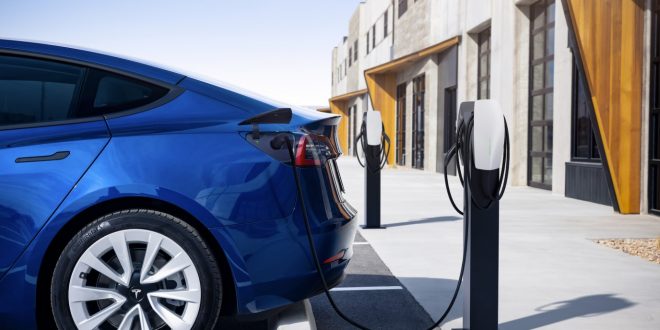Even Tesla has agreed to new requirements for companies seeking funding from the Biden Administration’s $7.5 billion EV charging initiative.
The Biden Administration announced Wednesday the final standards for its plan to build a national network of 500,000 electric vehicle chargers along highways, including a requirement that all Inflation Reduction Act-funded chargers be built in the US. Iron or steel charger enclosures and housing must be final assembled and manufactured in the US. By July 2024, at least 55% of all component costs must be manufactured domestically.
All chargers must use the U.S.-dominated “combined charging system” (CCS) and a smartphone-friendly payment system.
In North America, Tesla’s vast Supercharger network uses a Tesla-only connector. A Biden Administration agreement will change that.
Tesla will open some of its Supercharger and destination charger network to non-Tesla EVs. The White House says the company will install at least 7,500 chargers for all EVs by 2024. At least 3,500 will be 250 kW highway chargers. Tesla app and website users can access these stations.
Tesla will double its supercharger network.
Tesla’s concession to access that $7.5 billion comes days after CEO Elon Musk met with White House officials. Tesla has discussed opening U.S. EV chargers for years. By 2022, Tesla would open its chargers to other EVs, according to a White House memo in July 2022.
Date passed. After sharing its EV charging connector design to encourage network operators and automakers to adopt it and make it the North American standard, Tesla’s move was questioned. Tesla appeared to want to standardize its technology.
Tesla opened its European Supercharger network to non-Tesla vehicles. CCS chargers and vehicles made the transition easier. The transition may be more difficult here, but Tesla has reportedly developed the Magic Dock to allow non-Tesla vehicles to use its proprietary chargers in the U.S.
Tesla isn’t the only company to commit for Biden EV charging plan incentives.
GM, Pilot Company, and EVgo will build a coast-to-coast network of 2,000 high-power 350 kW fast chargers at Pilot and Flying J travel centers along U.S. highways. The companies announced Wednesday that drivers can use the first 200 chargers in this network in 2023. GM and Flo are installing 40,000 Level 2 units in U.S. and Canadian communities.
TravelCenters of America and Electrify America plan to install 1,000 EV chargers at 200 locations along major highways over the next five years, and Mercedes-Benz, ChargePoint, and MN8 Energy will install 400 charging hubs with more than 2,500 DC fast charging ports across the U.S. and Canada.
ChargePoint, Volvo Car, and Starbucks will add 60 DC fast chargers at up to 15 locations along the 1,350-mile pilot route between Seattle and Denver by summer 2023.
 Tech Gadget Central Latest Tech News and Reviews
Tech Gadget Central Latest Tech News and Reviews




